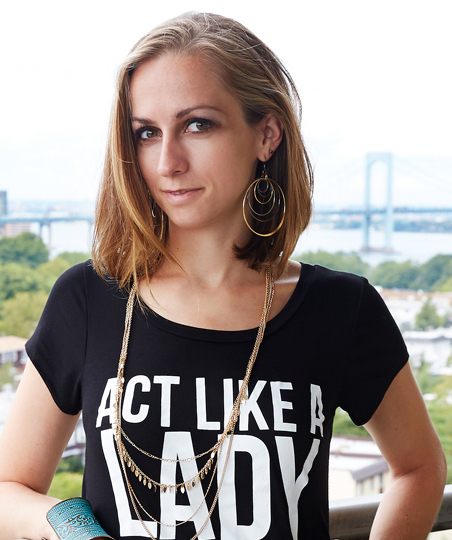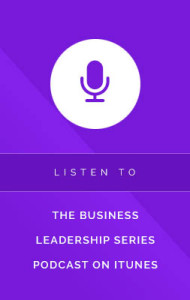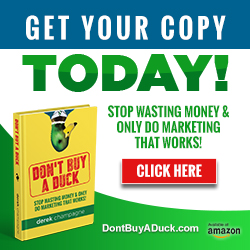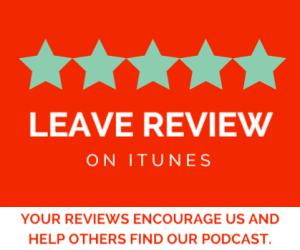BLS interview with Suzanne Paulinksi, founder of The Rock/Star Advocate, Part 2

Derek continues his interview with Suzanne Paulinski, founder of The Rock/Star Advocate. Suzanne talks with our listeners about staying in your lane, not beating yourself up comparing what others are doing, and how to meet your customers where they are so that they will engage with your product in a meaningful way.
Learn more at www.therockstaradvocate.com
Derek: I want to get more into you as the entrepreneur but first tell me a little bit more about the kind of service that you offer. You’re in New York, correct?
Suzanne: I’m in Queens. I work with artists from all over – I’ve had clients in Germany, Miami, California, Nashville. So Skype and social media, as you were saying, is a wonderful thing. But mainly what I offer- the dreaded word ‘therapy’ but I don’t market it like that. What I really offer is getting artists’ confidence and clarity on their career and on their mission. I also work with managers and other people. I say, “musicpreneurs,” as I call them but my main mission is to help redefine the hustle. What I mean by that, is to get out of the mindset that they have to go without sleep or they have to do things that they don’t really want to do but it’s what everybody else does, so that’s what they have to do. I help them get out of that fog and say, “Well what is it that you want to do? Let’s get clear on that because maybe what you want to do doesn’t need you going to all these networking gigs that you hate. Or maybe you’re not an artist that has to be on tour if you don’t like travelling; maybe there’s other ways to do it.”
So it’s figuring out what their true mission is and then what are those steps. Mainly, what I like to instill in them is the importance of self-care, the importance of having a sound mind when they do all this and really putting emphasis on the fact that they matter and that they don’t have to kill themselves to impress other people. They get swallowed up in this whole myth of “Nobody sleeps in this industry.” That is a myth. If somebody’s telling you they’re not sleeping, they’re lying to you because they would be dead. It’s impossible to just go [like that] – you know? You will hit a wall if you do that. So that’s really my mission and that’s what I do with my services. I call it The Rockstar Advocate because I really just offer support.
I’m there to guide them; one of my most popular services is email consulting, where they just email me whenever they need to and I, on like a monthly basis, provide just endless support to them. You want feedback on a song, you want feedback on, “I’m about to meet this person, what should I say?” You want feedback on an email you’re about to pitch to somebody. Whatever it is, let’s talk it out, let me give you a third party feedback on it. Also, just checking in with them and sending them an email saying, “Hey, I know you’ve got this coming up, you’re going to rock it, you’re going to be amazing.” That’s really what I’m there for, just to be that support and be that defogger, as I call it; so they can get out of their own head sometimes.
Derek: So tell me about your journey. What motivates you to be in the music industry? I mean, you obviously have a passion for it and it’s your calling but can you point to a moment in your background that made you want to be in this industry?
Suzanne: Sure. From the moment I was a little kid, I mean, I just remember wanting to be in the music industry but not wanting to be famous and then not truly understanding what that meant. Like I remember listening to Janet Jackson and thinking, “Man, I would love to be her backup singer or I would love to just be on stage with her but I don’t want to be her. I don’t want people looking at me but I would love to be a part of whatever is going on.” Then I remember being in junior high and seeing a Behind the Music of Russell Simmons and thinking, “Wow, I want to be him. I want to do what he does” and I still, again, didn’t understand what exactly he did. Which is why my first endeavor was to start a label because I was like, “That’s what Russell Simmons did, so that must be the only option behind the scenes, is to run a label.”
That’s kind of where my passion went and I’d never heard of Drexel University at the time. They’re a lot bigger these days but back – it was like 2002 – I had never heard of them. I just got a postcard in the mail – actually I guess it was 2000 – and I got a postcard in the mail, saying, “Do you want to be in the music industry? Do you want to learn the business behind the scenes? Do you-” and I was like, “Yes, I do, okay.” It was the only school I focused on. I was like, “This is where I’m going to go.” I like to make clean, simple decisions and I got the postcard and I told my parents, “This is where I’m going, see you later” and as soon as I got involved in that, I just became like, “What else can I do?”
I took on whatever internships I could, I worked for all of my professors, I had three different side jobs. Whatever they needed – all of our professors were in the industry and I thought, “How can I help?” because I wanted to learn every aspect, before I figured out what I wanted to do and then I found a mentor in my boss at Atlantic Records. I followed him to Astralwerks and I did it until I realized I didn’t want to do it anymore. That’s kind of always been my thing. I was like, “Well I’m interested in law,” so I did that until I just was done. I knew, “Okay, I’ve taken this as far as I can take it. I don’t want to go to law school but this has been really interesting, thanks for the info. I want to learn psychology now. Okay, thank you, I got my degree.” Now I kind of figured, “Alright, now I kind of know what I like and I don’t like about the business and where can I have my impact?”
So I just realized, “Well, I’ve got the psychology and I’m really passionate about that. I’ve burnt out more than once and I’ve definitely learned what not to do in the industry. So how can I help artists in that way and not”- it just kind of organically came about.
Derek: I like that story, it seems like you had loose framework for what you wanted to do because when you saw that card, it pinpointed it for you. You were willing to learn from others and take jobs to learn your craft, you weren’t too proud to do that and you learned that you could. Then you got a mentor and then you continued to get the skills that you needed with education and you take all that and learned from your past. I love that story; I think that’s really powerful. We’ve got interns that get college credits for coming to work at our agency and I see a lot of pressure on them sometimes that at 19, 20, 21, 22, to know everything that they’re supposed to do and I tell them, I say, “At 29 years old, I was in the music industry in Hollywood. I’m 40 now and I’ve owned an agency for almost a decade and I didn’t know at 22 that I was going to do all those things.”
I just knew what I wanted to, I wanted to be an entrepreneur and I knew that I needed to continue to learn from others. To take jobs and not to be too proud to learn and I think that’s really powerful. So I love that story and I think for me, those are some of the steps that I like to share. I mean, you almost lined it out exactly – that success story, you didn’t have a direct map but I feel like I hear that often with these interviews, it’s those that really get onto something really big and unique and do well with it. They’ve followed these steps and it’s a continual journey, it’s not that at 22 you’ve got it all figured out but as you grow, you start to put all the pieces together.
Suzanne: Thank you, absolutely. I actually got a chance, when I was 22, to meet Russell Simmons and I asked him – yes, it was amazing – and I asked him, I said, “How do you know when to listen to the “experts and mentors” and how do you know when to listen to yourself?” because I was really struggling, thinking, “I just quit my job to do my own business, what was I thinking?” I had people say to me, “You’ll never step foot in this industry again. Are you insane?” and he just said to me, “Listen, do what you think is right and if it’s wrong, then tomorrow you wake up and you try something else. And if that’s wrong, you wake up tomorrow and you try something else.” It really just kind of gave me permission – my parents were always the same way too thankfully. Saying, “Listen, do it until you hate it and then if you do it, always figure out what you don’t want to do. You might not always know what you want to do and sometimes you have to figure out what you don’t like, before you get there.” And always trusting this, my time as a paralegal has never gone to waste, my time, going back to school for psychology has never been a waste. You will take it and use it in some way, just don’t worry about that just yet.
Derek: Right, don’t burn bridges. And sometimes, I’ve had enough of these things. Sometimes you go, “I’m not sure where this fits in but I’m going to compartmentalize this and trust that I’ll either recall it someday as a decision I shouldn’t do again or I’ll build onto something else.” That leads me to my next question. When I’m a guest on podcasts, they always like to ask me about failure, which- ouch, right? So recently I had a venture I let go and moved on from a side project and it hurts, it stings. You deal with that disappointment sometimes because they’re your babies, you build them and your heart’s in it. Tell me about dealing with failure in the past and what did you go through and how did you pull yourself back up to where you could motivate and continue?
Suzanne: Sure thing. No, I love that question and I think failure is such a necessary part and not enough people are honest about it to other people; so I’m so glad you asked that. One of the things that I have looked at as a failure, it was I think 2012 and I loved having a business partner and I loved that my business partner was somebody I considered a sister to me and I still do and she’s a wonderful person, so intelligent and so talented. And I could feel something was off and I could feel that she was terrified to tell me what she needed to tell me. So I just said, “Okay, what’s up?” and she said, “This isn’t what I want to do anymore and I want to go do something else. I know this business means so much to you” and she went on and on and I said, “Listen, thank you for telling me, I could tell something was up. If you’re cool with it, I’m going to keep the name and keep going,” and she wished me well and it was fine.
Then as soon as she left, it was like I didn’t want to keep going and I didn’t know what direction I wanted to take it in anymore. I had a lot going on with my family at the time and I was just about to graduate with my masters and I had that going on and I kind of panicked. I really had a hard time with it, not because she left but because I felt like I failed as a partner. I felt like, “Why doesn’t she want to work with me anymore?” or, “How did I make this business something that she no longer wanted to do?” and it took me a little while to really realize, that’s her, that’s her path. She’s entitled to that and maybe this business really wasn’t what I want to be either and we were both kind of just two people doing things that we felt we should be doing. I got a business coach after that and she taught me, get rid of “should,” that is a horrible, nasty word and get rid of that.
So I took time off, which was a scary thing to do and I got a regular old job and I figured out what I really wanted to do and that’s when The Rockstar Advocate was born. Where it was really like I’m not beholden to anybody anymore, I don’t need to please a business partner and I don’t need to make sure we’re on the same page. As scary as that was, it was very liberating and that’s really what came out of it. It was, okay, stop looking at somebody else to answer my questions. What is it that I want to do? I never really thought of it, like really thought about it before. Now I look back and I say, “Wow, she’s remained supportive, I remained supportive of her” and I finally found something that I really, truly love to do.
Derek: Wow, that’s great. So in that process, give me a timeline. How long has it taken you to find yourself or to find your way in some of these different pockets of growth? What does that look like in those valleys? And I don’t want to harp on the valleys but for those that are listening and identifying because again, it’s tough to see them – sometimes to let them go.
Suzanne: Oh, 100%. Yes, so the valley – I mean, it lasted for about a year and a half, almost two years and we had spent eight years building our business together and it really never became anything big. It was because we were just kind of spinning our wheels and not really sure of our ‘why’ or what we wanted for it to become. So when she left and I was kind of fiddling around, I just thought, “Oh my goodness, did I waste these eight years? Should I have stayed at Astralwerks? Do I go back and work for somebody else?” It was real – and I did have a therapist and I did go and I did kind of have a bit of a depression and I thought, “What do I do? And if I’m using this time to step away, can I come back? Will I have wasted this now year and a half?”
When I wanted to come back with The Rockstar Advocate, I thought, “Did I stay away too long?” and I got really nervous about coming back out with this and trying to figure all that out and “Okay, well if this thing that I spent eight years on didn’t work out, how long do I spend on The Rockstar Advocate before I realize—” you know, all these things you grapple with, the one thing I learned from getting a business coach, was that you’re always going to grapple with something and you’re always going to doubt yourself and have fears. If you can, just get it out there and test it first. I think one of the mistakes I made with my past business, was that we were such perfectionists and so we very rarely got something out to the public because we were so, “This isn’t right, this isn’t right, got to tweak this, got to tweak that.” My coach always said, “Done is better than perfect” and so yes, it’s something that I was like, “What? But it’s not ready, what are you talking about?”
I’ve done so much more with The Rockstar Advocate in the last two years than I did in eight years with the other business and it’s because I’m just getting things out there and I’m accepting criticism and I’m accepting having to redo something or tweak it or refine it because that’s the whole point. If you wait until it’s perfect and it’s perfect in your mind and then you put it out and somebody says, “That’s not really what I need” or, “That’s actually not what I was looking for”; then, “What the heck?” So if you just put it out and you kind of create it as you go along and then you’re getting feedback from your clients saying, “I could use more of this” or, “I could use more of this”; then you’re in a more flexible position. Rather than, “Well I just put this whole thing together, what do you mean you don’t like it this way?”
Derek: Yes, I’ve seen there’s countless brands or potential brands that I’ve looked at, that just could not pull the trigger. I understand getting a product right and if you have competition and certain types of products and certain- have to- with patents and all of those things. I get that but I’ve also seen where I’ve said where you’ve – like you said – what was your quote? “Good is better than done”?
Suzanne: Yes, “Done is better than perfect.”
Derek: Right, exactly and so sometimes you do have to let the market- sometimes you have to perfect it in the marketplace but you’ve got to get it out there. I wonder if sometimes- I wonder if it’s fear sometimes. I understand perfectionism but sometimes I feel like it’s a fear of rejection.
Suzanne: Oh, 100%, yes.
Derek: So I think that’s another thing where failure comes in and I’ve had businesses that I’ve done well with and I’ve sold and I’ve had some that just didn’t – that were before their time, that’s being kind. Or that just weren’t quite the right fit in the right place. But you know what? Because of those things and being willing to pull the trigger, now I have to make good decisions when I launch something but I think those experiences helped me learn. Helped me get over my fear and it helps me to help clients launch businesses as well as I’ve done it enough times. So you start to kind of get a barometer of where you should be, if you’re launching enough of them and so if you’re launching multiple products to your clients and offering new services, you start to, in the marketplace and in life, you start to figure out kind of generally where you should be and then you can make little tweaks.
Suzanne: Absolutely and I think one of the things—and again, in having a coach and having somebody that’s there to guide you, which is what I hope to offer musicians— I have my own and also the lesson that I have learned, is when you get it out there and you have to make the tweaks, that’s okay. When you are afraid to put something out there – like you said, it is very much fear based, you have to stop yourself and ask, “Well, what exactly am I afraid of?” because sometimes it’s pretty vague and when things are vague, then we can’t really get a handle on them. So if you’re able to really think about, “What am I so afraid of?” the future is 50/50- we immediately assume, “Well the future’s going to be bad, it’s going to be horrible and they’re going to hate this and it’s going to be bad.” But we don’t know that and it could equally be just as positive. Like I sell e-books on my website and one of them – actually all of them include this exercise called “Flip the Script.” So it’s like write out your fears but then flip them so what’s going to be the positive version of that? Like, you know, publishing a book, “Oh my goodness, what if nobody buys it?” becomes “What if a bunch of people buy it, it creates a movement and everybody is super excited about what I’ve put out there?” Like, why not?
Derek: That’s great and then on the flip side, is some of us who are entrepreneur wired, we always think too positive. We’re quick to draw, that’s the other side of us, so there’s a balance I think. But I think failure sometimes helps us learn to be cautious for those that are on the other side of things. I think everybody has something great within them and they’re destined- everybody has the potential to be destined to do great, great things and in whatever industry. I mean, I just interviewed a guy from Old Miss, who came over as head of landscaping and created a movement called “Landscaping University” and out of people picking up trash, had a movement form where people’s lives were transformed.
Again, it sounds sappy but I think all of us has something amazing, so the listeners out there who feel like they’re not in a place of complete satisfaction or feel like you have more to give or sitting on an idea. I really want to encourage you to explore that further and take the next step with it.



